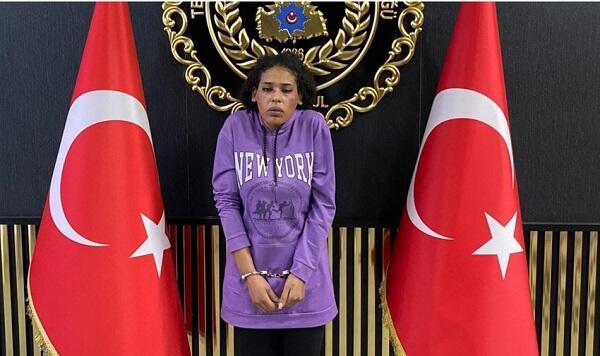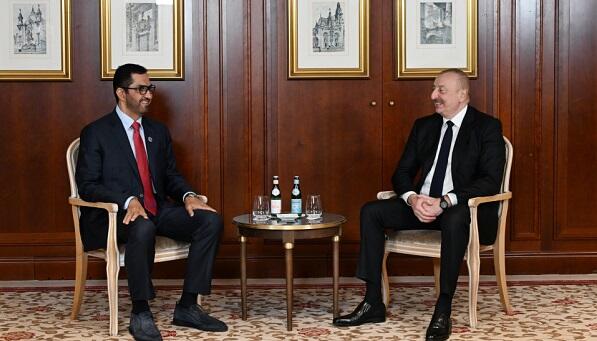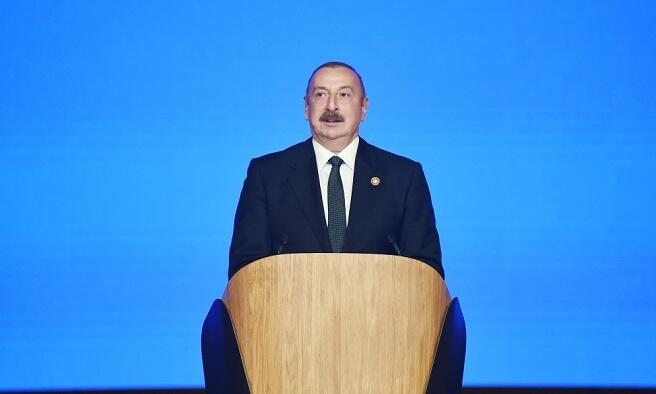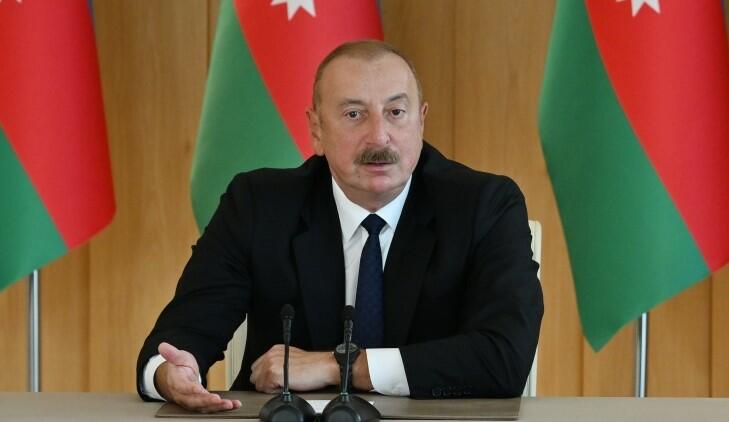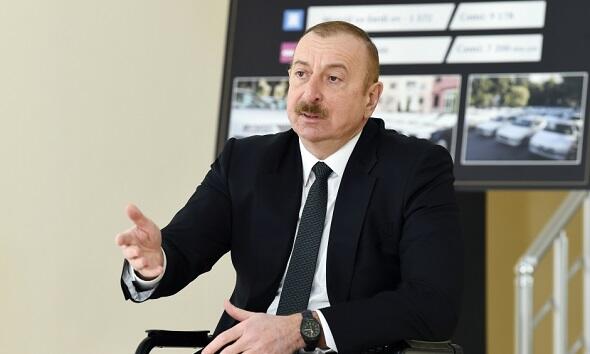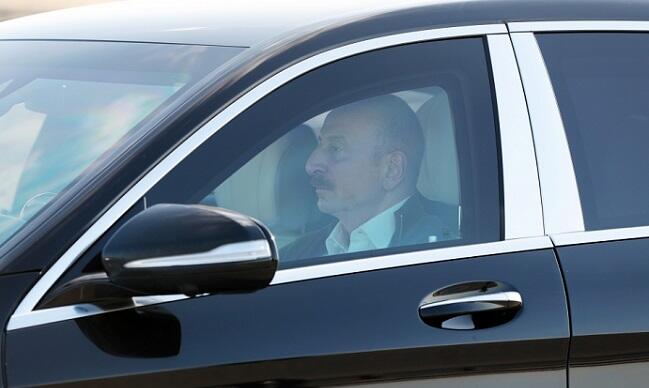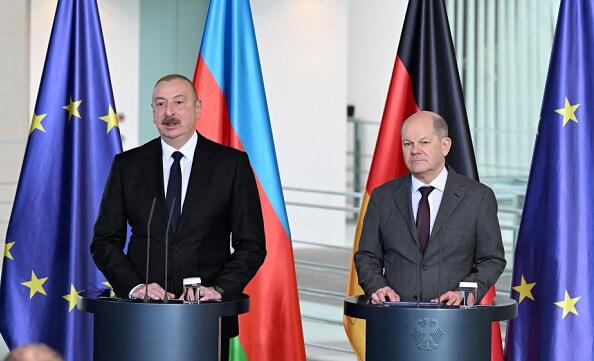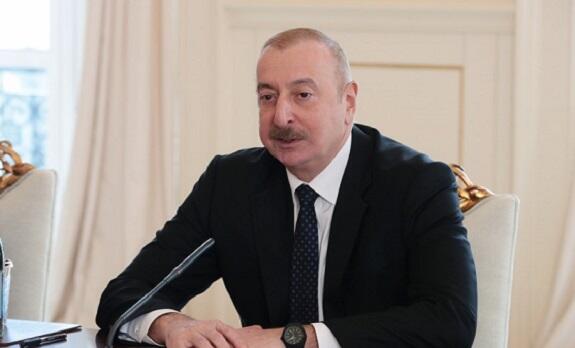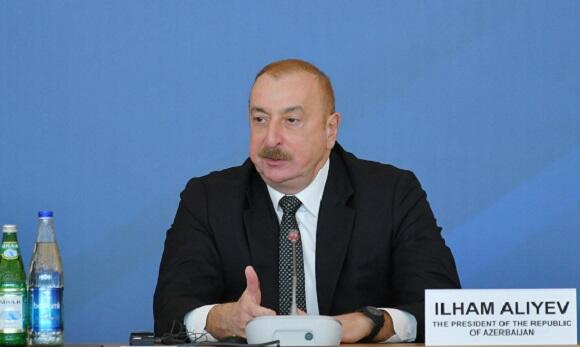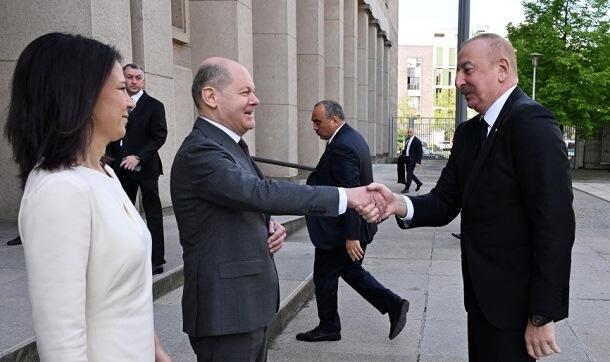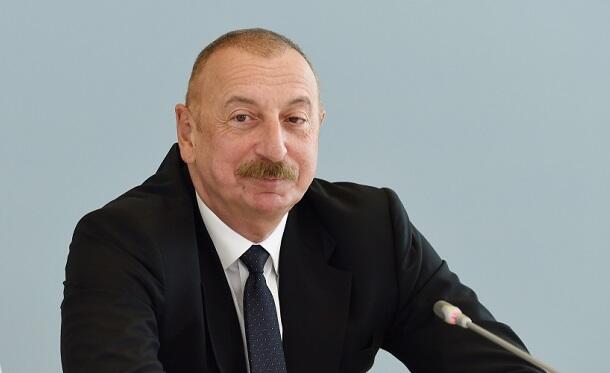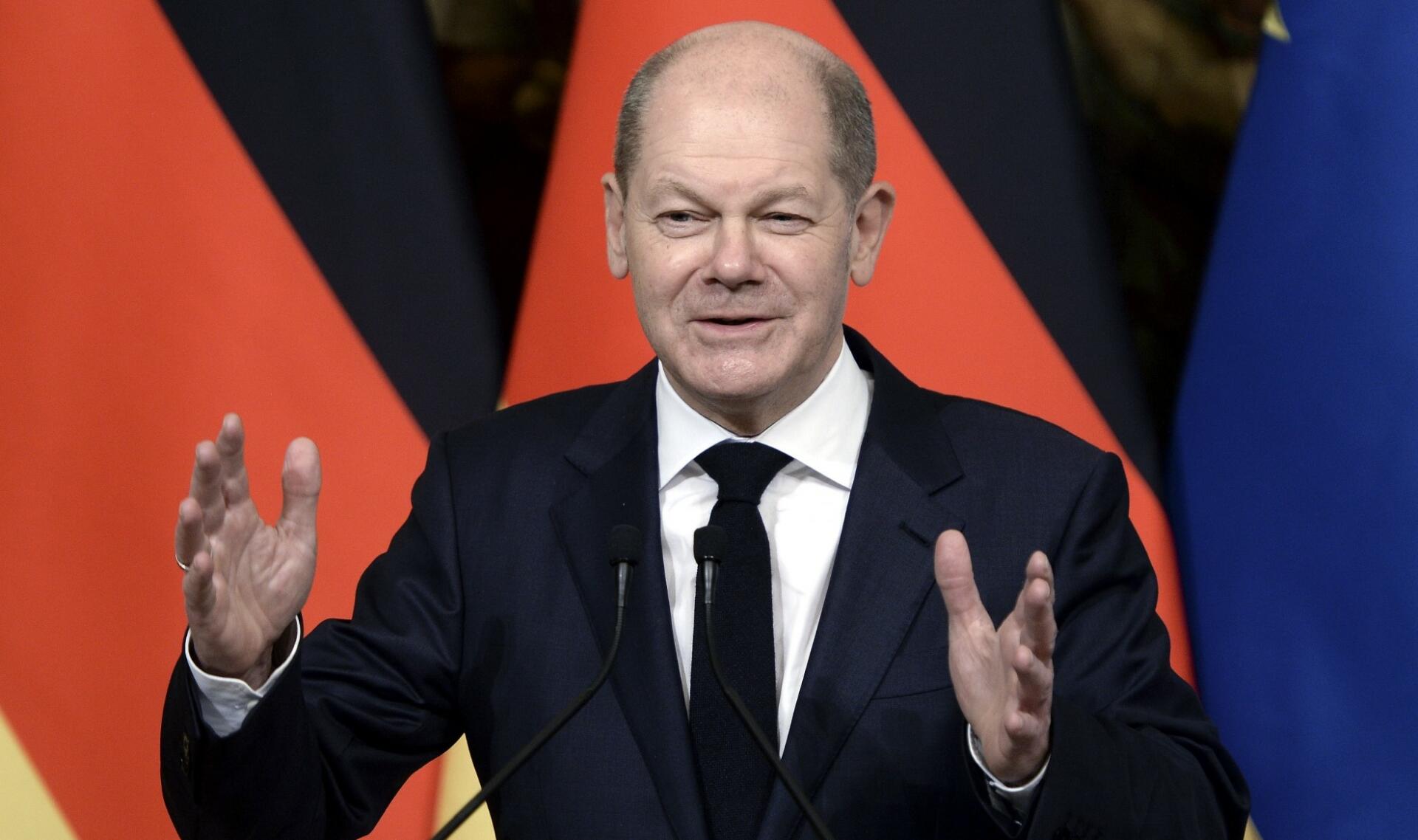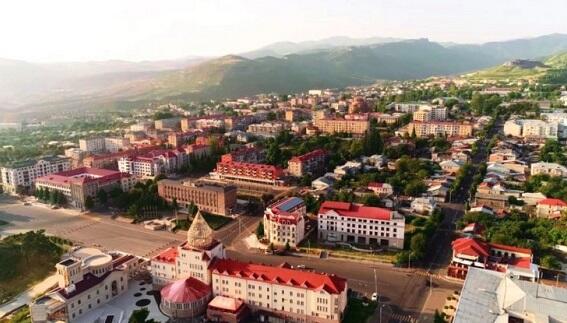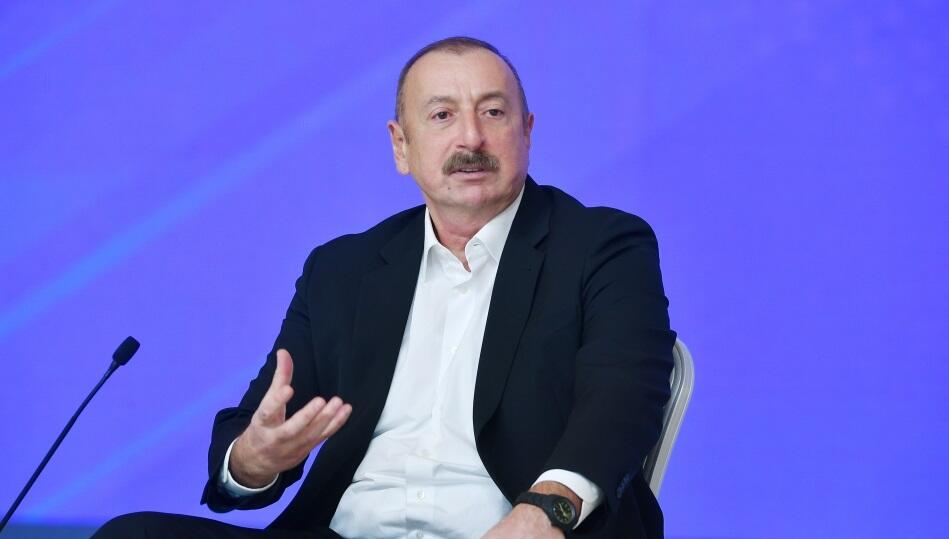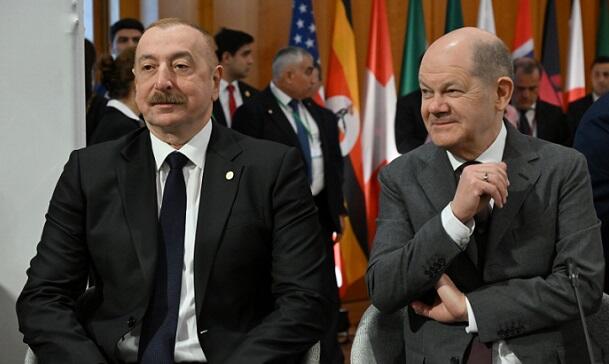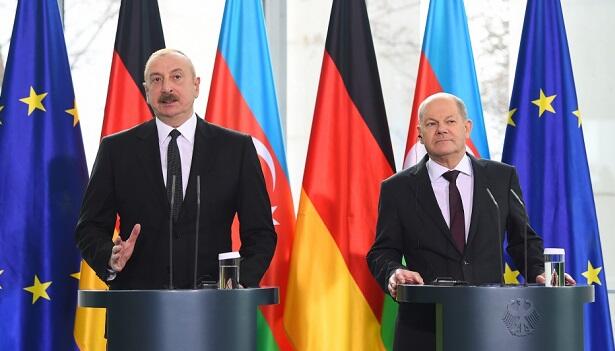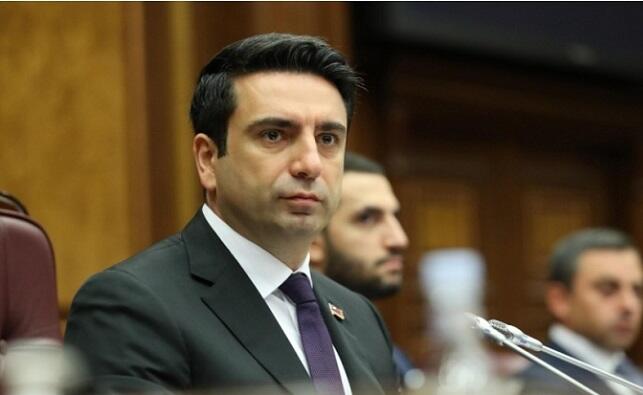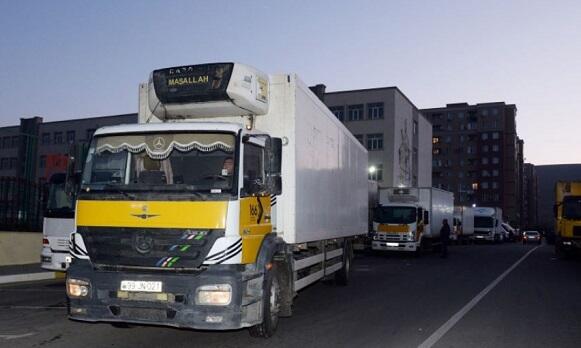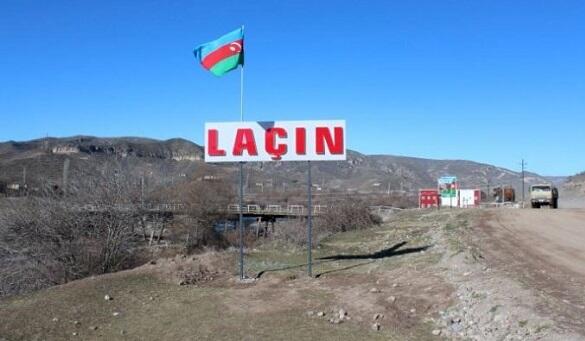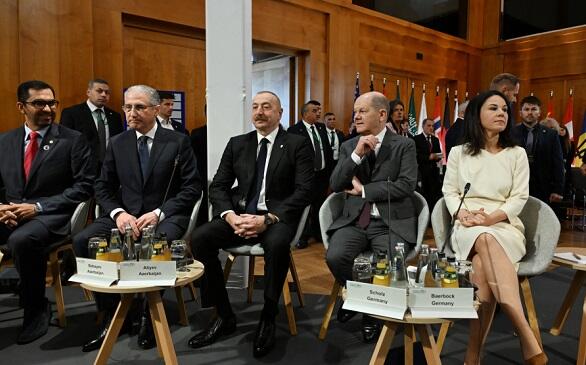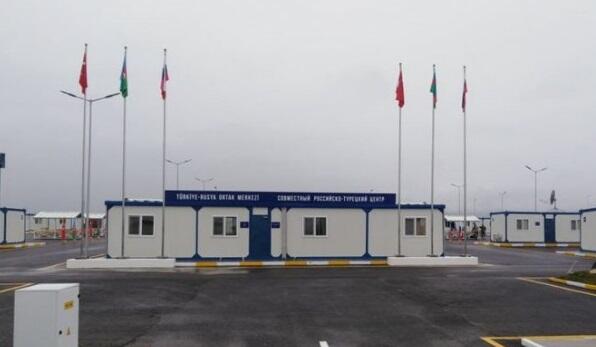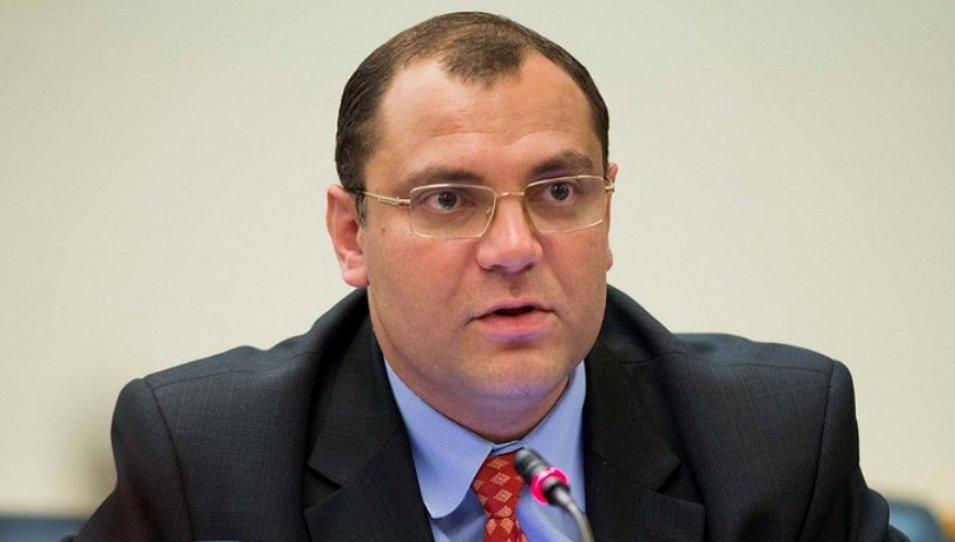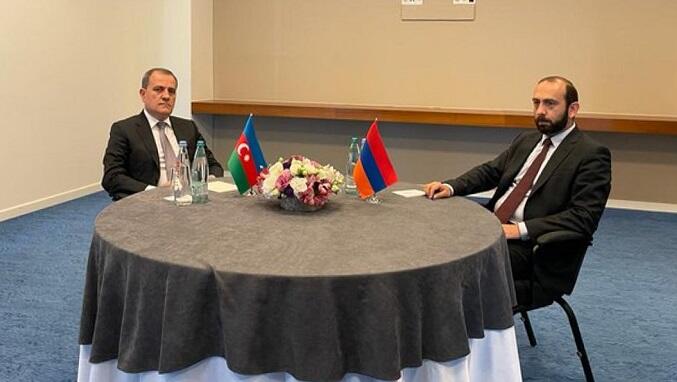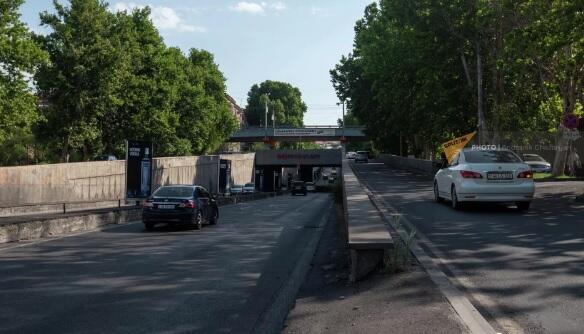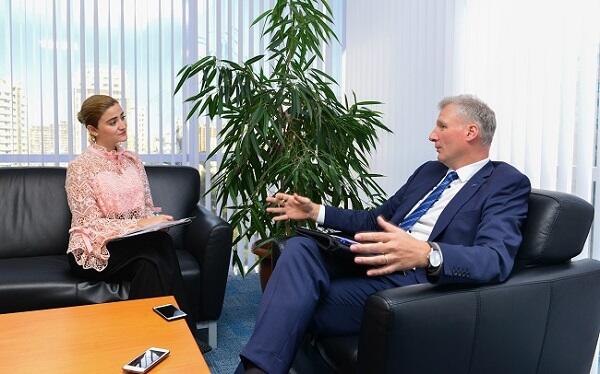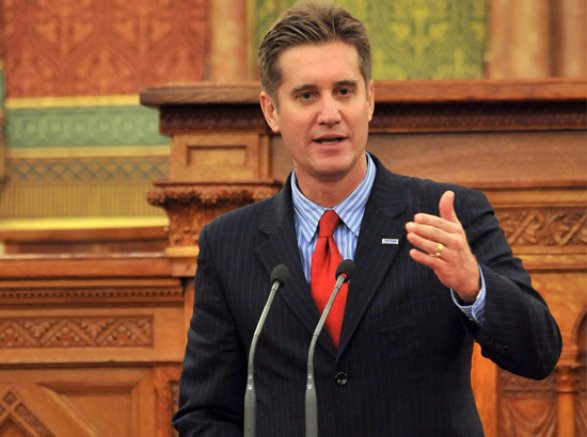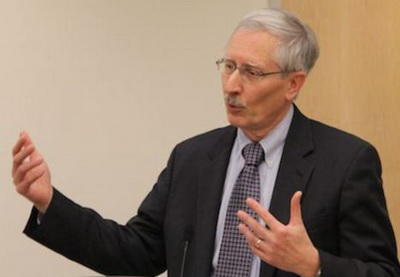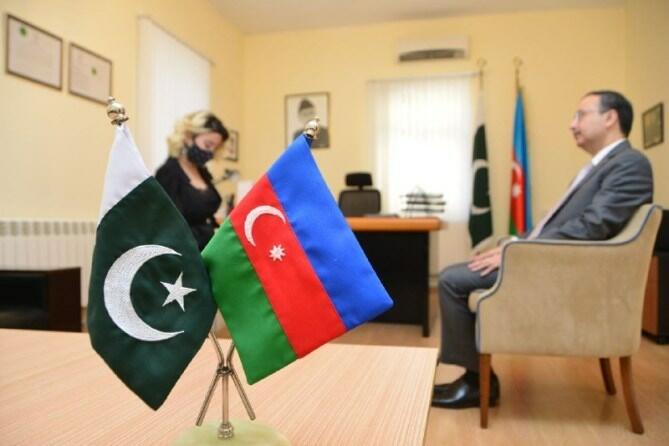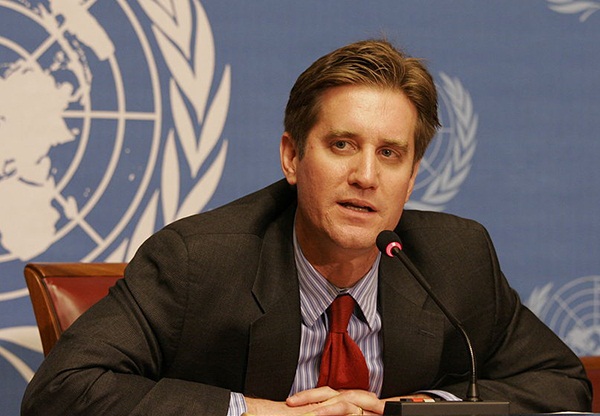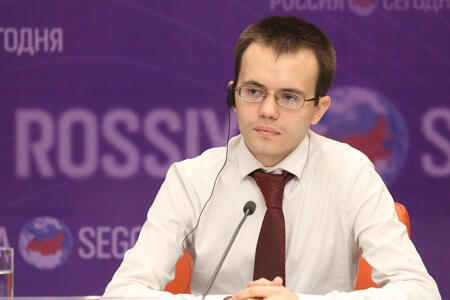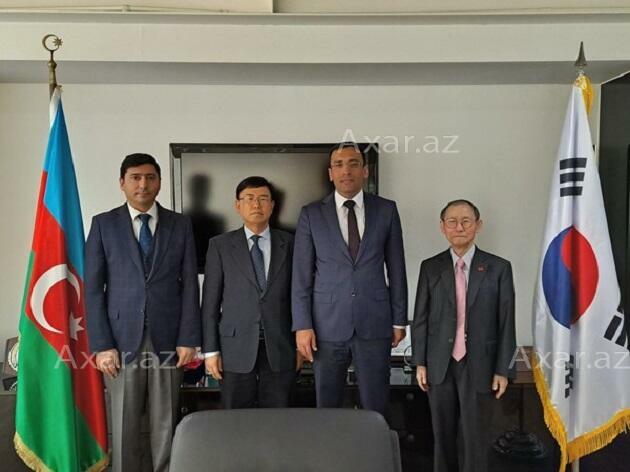Axar.az presents the interview with the Head of the EU delegation in Azerbaijan, Ambassador Kestutis Jankauskas:
– What is the status of a partnership agreement to be signed between Azerbaijan and the European Union? Do parties have a chance to sign a deal in 2020?
– The short answer is yes. But let me explain a little bit. As you know the pace and the depths of the negotiations depend on the level of ambition of both sides. Azerbaijan has expressed the wish to have a substantive agreement, and the European Union fully welcomes and supports this. We started the negotiations in February 2017 and they are still ongoing. There has never been any set deadline for finishing our work. Concerning the procedure, the signing of the agreement comes later. The first thing that happens when both sides finish negotiations is the initialing of the agreement. Initialling means that both sides have found a compromise on the whole text of the agreement. By initialing both sides confirm that this is the agreed text. So, can it happen in 2020? Yes, but I would say that if we work hard we can finish the work even this year, in 2019. Of course, if we want it to be substantive we need to agree on the substance. Negotiations continued in September and October, we had five videoconferences between our teams in Baku and Brussels. Actually, both sides are committed to keeping working to make the initialing happen as soon as possible.
– Do Azerbaijan's positive relations with Russia, as well as its refusal to join the EU in some way affect the EU's relations with Baku? What are the expectations of Brussels from Baku?
– Let me start by saying that Azerbaijan is one of the six partners of the European Union within the Eastern Partnership. Azerbaijan is an important partner for us. Russia is the neighbor of Azerbaijan, and I think we all want to have good relations with our neighbors. Azerbaijan has never "refused" to join because it has never been invited. It is up to Azerbaijan to seek or not to seek membership in the EU. At the moment Azerbaijan is looking for a partnership, not for the membership. Each sovereign country independently decides its foreign policy. We respect the choice of Azerbaijan. It is our important Eastern Partner with which we are negotiating a new ambitious partnership agreement.
On 11 October we had structured consultations in Baku on the future of the Eastern Partnership. It was mentioned during the discussions that over several last decades rapid enlargement of the EU has created a misperception that "EU is seeking to incorporate neighboring countries as members". We don't. There are partners who continue to see membership and who work to get ready for membership. But there are others who want to strengthen the partnership and the EU is working to build partnership with them. Azerbaijan belongs to this category.
What about expectations? The expectations are that Azerbaijan remains a reliable, stable and secular partner, that we continue building our energy cooperation and that we sign a new agreement as soon as possible. The new agreement will open additional possibilities for trade-in non-oil products and enhanced cooperation in many areas. We expect to sign our Aviation Agreement soon. It has been ready for some time. It would boost people-to-people contacts for the benefit of both sides. We hope to continue our cooperation in transport, logistics, environment, digital connectivity, health, education, SMEs and so on. We expect Azerbaijan to honor its commitment to the Council of Europe when it comes to the fundamental values of human rights and the rule of law. And we are not only expecting it, but we are also ready to work towards all of it together.
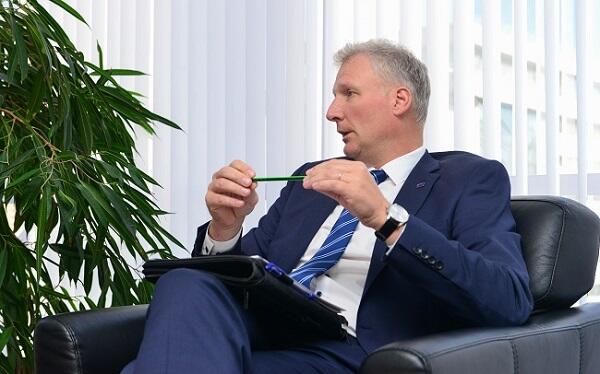
– Let's talk about the visa regime. The fee for the Schengen visa was lowered by the EU several years ago. At the same time, the relations between the parties have intensified in recent years. In general, what are the reasons that prevent the parties from entering a visa-free regime so far? Brussels doesn't want it, or maybe Baku is not interested in, or are there some other reasons?
– In 2014 we have signed two important agreements – on Visa Facilitation and Readmission. Let me talk first about the Visa Facilitation Agreement. As a result of this agreement prices for the Schengen visas went down. Many categories of people have received visas easier: students, journalists, sportsmen, civil society representatives, international drivers, persons going for medical treatment and so on. Actually, in the last two years, the EU has issued twenty-five thousand visas free of charge for those categories of people. Processing time for visas became shorter. We issued many more multiple entry visas. For example, during the last five years, 40% of Schengen visas were multiple entry visas. So, this agreement already had a lot of impacts.
When these two agreements – on Visa Facilitation and Readmission – will be fully implemented, we could consider starting the preparations for the visa-free agreement. But there is a lot of homework to be done before we get there. And to start that process the decision needs to be taken by 28 EU member states by consensus. It is largely a political decision. To get there, the abolishment of the visa requirements for the EU citizens to come to Azerbaijan would help. Every other country that is currently enjoying visa-free with the EU has unilaterally abolished visas to EU citizens years earlier. I hardly imagine what danger EU people would pose to Azerbaijan. Quite the contrary – they would discover beautiful Azerbaijan, its people, delicious food, nature, hospitality. They would hear Azerbaijan's story about the Nagorno Karabakh conflict. They would support the tourism industry, regions, small family businesses, etc. I see huge potential for us working on that.
– The European Parliament has not yet specified the invader in the Karabakh issue. However, there are 4 UN resolutions on it. At the same time, the European Parliament adopted certain documents. What is the reason for the European Parliament not taking a more concrete position in the Karabakh conflict?
– This is the question for the European Parliament. Members of the European Parliament are democratically elected representatives who answer to their electorate. Actually, the European Parliament has recently adopted several resolutions where it clearly supports the territorial integrity of all the Eastern Partnership countries. Take the last two of March this year and December of the last year: they clearly underline the importance of the territorial integrity of the Eastern Partner countries. I think that supporting territorial integrity has been the consistent position of the EU. Since you are asking about the European Parliament, as you know there are new members elected this year in May. I wonder how many of them have been to Azerbaijan? Maybe inviting them to visit would help them to discover Azerbaijan, to hear more about the conflict, to better understand the region? Maybe the abolishment of visas and making travel easier would bring more of them here? I think this is a win-win case.
– Does the uncertainty on the Karabakh conflict of the European Parliament affect Baku-Brussels relations?
– I think that the EU and its institutions have been consistently clear and outspoken on the support of the territorial integrity of the Eastern Partnership countries. Have a look at the latest declaration of the Eastern Partnership Summit in 2017, look at the EU-Azerbaijan Partnership Priorities document signed last year and you will find unequivocal support to the territorial integrity. The next possibility to advance our common thinking on this is in our new partnership agreement under negotiation. But the negotiations need to be finished. In the European Union, we support the efforts of the OSCE Minsk Group and its Co-Chairs. This is the format that Azerbaijan has chosen for handling the conflict. We also have our Special Representative who travels to the region frequently and who is informing the EU institutions and the member states. So, from the EU side, there is no uncertainty. I think that we have always been very clear.
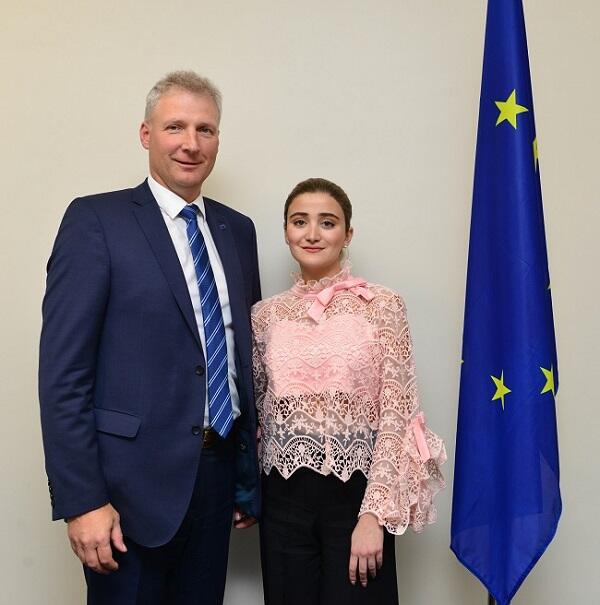
– You've been here since 2017. What is your most valuable memory in Azerbaijan?
– Difficult to single out one. There are many. I would say hospitality, multiple encounters of the hospitality of Azerbaijani people. It has been shown to me in Baku where I and my family live, also during multiple trips to the regions. I also admire the youth of Azerbaijan: it is bright, motivated, willing to work for the better future of the country, has lots of ideas. They want to strengthen the links between Azerbaijan and the EU. We have over a 100 "Young European Ambassadors" - young Azerbaijanis who are helping our cooperation. It is the biggest number among all Eastern Partnership countries. We meet and work with them regularly and they are great! And I hope that maybe the most valuable memory is still in the future, maybe signing of the new Partnership agreement and the Aviation agreement would be that memory one day?
– You told me about the Young European Ambassadors. Do you really feel that they are accessible to the average Azerbaijani young people?
– Absolutely. They are all ordinary young Azerbaijani people. They have applied, they showed their motivation, willingness to work on strengthening EU-Azerbaijan relations and they have been selected. I always ask them to encourage more of their friends to apply. All they need is good knowledge of the English language and motivation, energy, willingness, ideas. Last year we had 80 of them, this year we have over 100. They come from different regions of Azerbaijan, study different subjects or have jobs. They get to travel to Brussels, they are making new friends there. They help us in their native regions. This is great initiative and it can grow bigger!
– To my knowledge, you have previously worked at the Lithuanian Embassy in the United States. How would you compare your work in Azerbaijan and in the US?
– Indeed, I am a Lithuanian diplomat who is seconded, or "temporarily assigned", to the European Union. I started in the Lithuanian Foreign Ministry in 1991, since the very beginning when that Ministry was re-established. I worked in several other countries as a Lithuanian diplomat: first in Sweden, then in the United States, in Washington, and twice in Brussels, once with the EU and once with NATO. Every posting has been unique because it happened at a particular historic moment. None of that was boring, quite the contrary.
Now In Azerbaijan, I represent not only my native Lithuania but the European Union. That is an absolutely new level of excitement, but also the responsibility. Azerbaijan is a strategically important partner for the European Union, we have dynamically developed relations, some challenges, and enormous opportunities. So, quite the contrary, it is very exciting and interesting. And the more you know the country, the more opportunities you can identify. I'm trying to spend my time and energy building good teamwork so that we could move forward to our relations.
– How do you see Azerbaijan’s role in the region involving in the next few years?
– Azerbaijan has been managing quite well in this complex region, and it is expected to continue doing so. Oil and gas sectors are quite established. The next big project is the development of the transportation hub coupled with the diversification of production in the non-oil sector. To succeed in that one is expected to be able to compete with other routes and other markets. So the challenge will be to provide the best conditions for efficient transit, smooth procedures, attractive rates, best market conditions for foreign logistics operations and businesses. Azerbaijan has good potential to accomplish that. We are witnessing now new appointments and decisions being made to activate and stimulate socio-economic reforms and development. A lot will depend on what economic decisions will be taken in the future and how quickly. EU is ready to help and work together.
